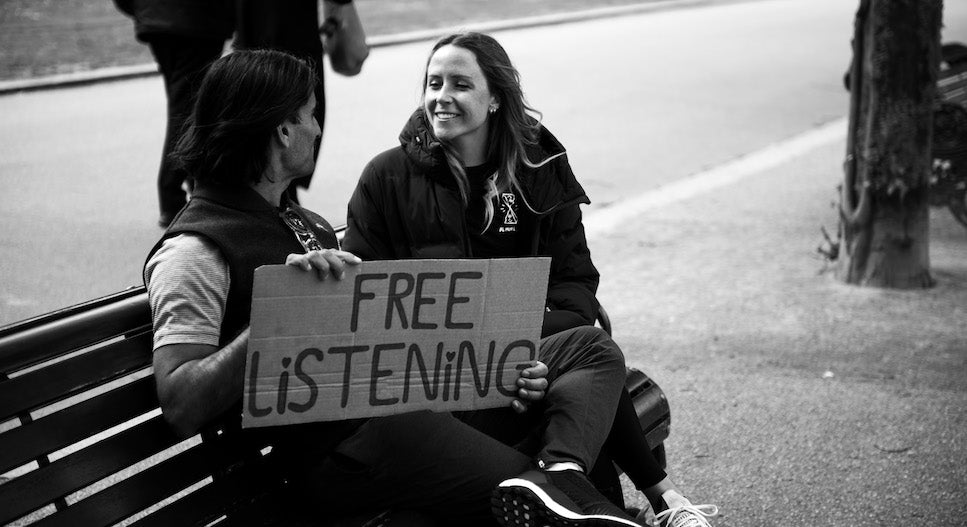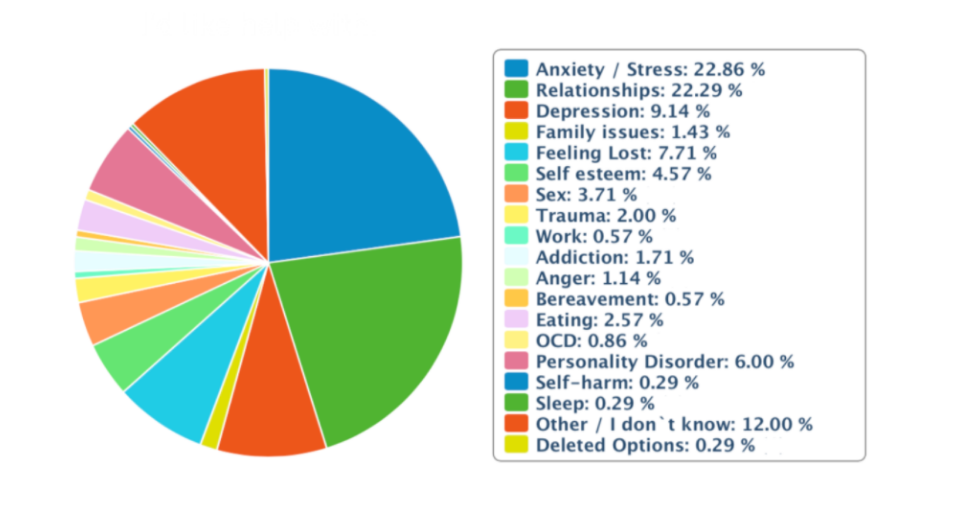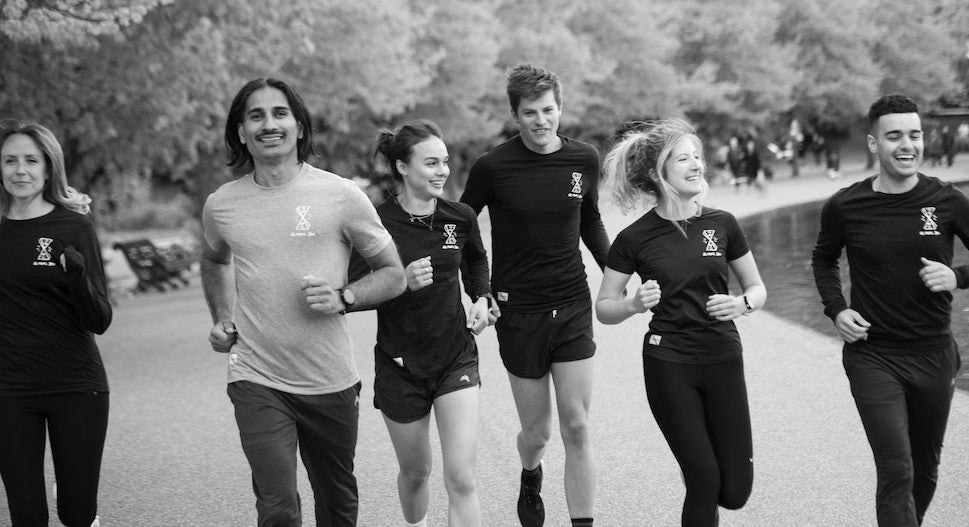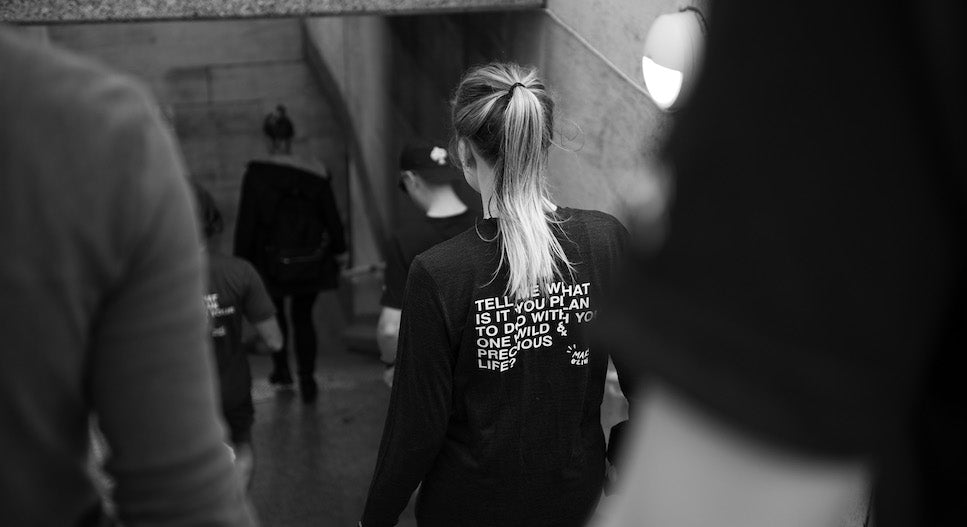
We all have times when we are not feeling at our best, whether it’s work stress that is getting us down or we have a niggle that’s stopping us from getting through our training plan. Sometimes life can throw us an unexpected curveball. Think about, for example, a bereavement, breakdown in a relationship or something unprecedented - like the current situation brought about by COVID-19, which has thrown most of us out of sync with our everyday routines, causing our anxiety levels to go through the roof.
What is Mental Health and why is it important?
The World Health Organization defines mental health is a state of mental and psychological wellbeing in which every individual fulfils his or her own potential, can cope with the normal stresses of life, can work productively and fruitfully, and is able to make a contribution to his or her community.
Mental wellbeing is important as it enables us to flourish in society and meet the demands of everyday life. With good mental wellbeing our lives are enriched with positive emotions (i.e. happiness, satisfaction), engagement and interest in the things we enjoy. It also allows us to find meaning in our lives, build relationships, and enjoy our accomplishments both at work and in our private lives.
It is estimated 1 in 4 people will be affected by mental or neurological disorders at some point in their lives. These results from the Harley Therapy Platform Survey 2017, outline the stressors that are troubling us.
 The Impact of Mental Health Conditions
The Impact of Mental Health Conditions
The impact of poor mental health is far-reaching, as it affects an individual’s life and the life of those around them. The most common complaints include panic attacks, procrastination, low confidence, and lack of sleep and concentration. This can lead to a negative chain of events, as an individual may isolate themselves from social situations and reduce their chances of getting support from their family and friends when they need it most.
There is also a knock-on effect here: many people disguise their mental health issues at work, but behave differently when at home with their family or around their social network. Those suffering from mental health conditions are generally less able to cope with the demands of their personal lives, including managing their finances, relationships and physical health.
The ultimate human cost of poor mental health is loss of life through suicide. According to figures released by the National Office of Statistics, there were 6,507 registered deaths by suicide in the United Kingdom in 2018. That’s an average of 17.82 suicides per day across the country. Suicide also accounts for being the biggest killer among men aged under 45 years.
How to Improve our Mental Wellbeing
Our day-to-day lives can be difficult, and sometimes it’s hard to cope with what’s expected from ourselves and others. However, if we take the time to improve our mental wellbeing now, we will be better prepared to deal with any future issues as they arise.
See below for a selection of exercises that can help you to improve your mental wellbeing during this uncertain period and beyond.
Be Your Own Best Friend
We generally have higher expectations of ourselves than the people around us and it’s not uncommon to be unkind to ourselves when we make mistakes. This makes us unhappy and does little to improve our situation. A way to combat this is to imagine a friend that is in need of support: How would you deal with them? The answer Is likely to be in a caring and understanding way that will be helpful to their mental wellbeing.
Be kind to yourself and be your own best friend too!
Gratitude Jar
All you need for this exercise is an empty jar and a pencil. Each day, think of three things that you are grateful for and write them down on a piece of paper. Then date, fold them and place them in your jar. What you write could be anything from the sun shining that day, an unexpected video call from an old friend, or completing a work assignment. Even on days when it seems nothing has gone well, you can almost always find something to be grateful for.
Recording three things each day evokes positive emotions, and even on days when things aren’t going your way, you can always reach into your jar to brighten up your mood.

Get Outside
Getting outside can improve our mood, make us more productive and ultimately happier. Step outside and walk to a local green space, this could be your garden, a park or nearby green patch. Seat yourself and feel the grass beneath you with your hands and feet. Take in the sights, sounds and smells in the air around you. Take a deep breath, take it all in and relax.
Mindful Moments
Give yourself 10 minutes every morning to be mindful. Make yourself a hot drink and sit down by the kitchen table to greet the day ahead. Enjoy the silence and take in this time for yourself to be present, instead of rushing into the day’s activities.
Do the same at the end of each day, find a calm space to unwind and be still in silence, alone with your thoughts, before retiring to bed.

Switch Up Negative Thinking
For many of us it’s normal to spiral into a negative chain of thoughts when things aren’t going according to plan. We begin by telling ourselves we can’t do something; things won’t work out or that we’re not good enough. Next time you catch yourself immersed in a negative thought, try to think of some positive alternatives - i.e. “maybe I am better at this than I think”, “perhaps everything will work out ok”, “things will get better”.
Emotions Are Contagious
It has been scientifically proven that our moods are infectious. As humans, we mimic the moods of those around us, and our brains then interpret these as our own emotions. So, less of the negativity! Let the smiles and laughter run free and it will have a positive impact on everyone around you.

Article Written by Sha Hussain, Founder of Be More You with support from Sarah Curtis, Psychotherapist and Counsellor on the exercises to improve your Mental Wellbeing.
Be More You are a group of runners who are passionate about community and mental wellbeing. Go check them out on Instagram @bemore.you to learn more about what they are doing to raise awareness for mental health, promote positive psychology and its benefits in the global running community.





























 The Impact of Mental Health Conditions
The Impact of Mental Health Conditions

































